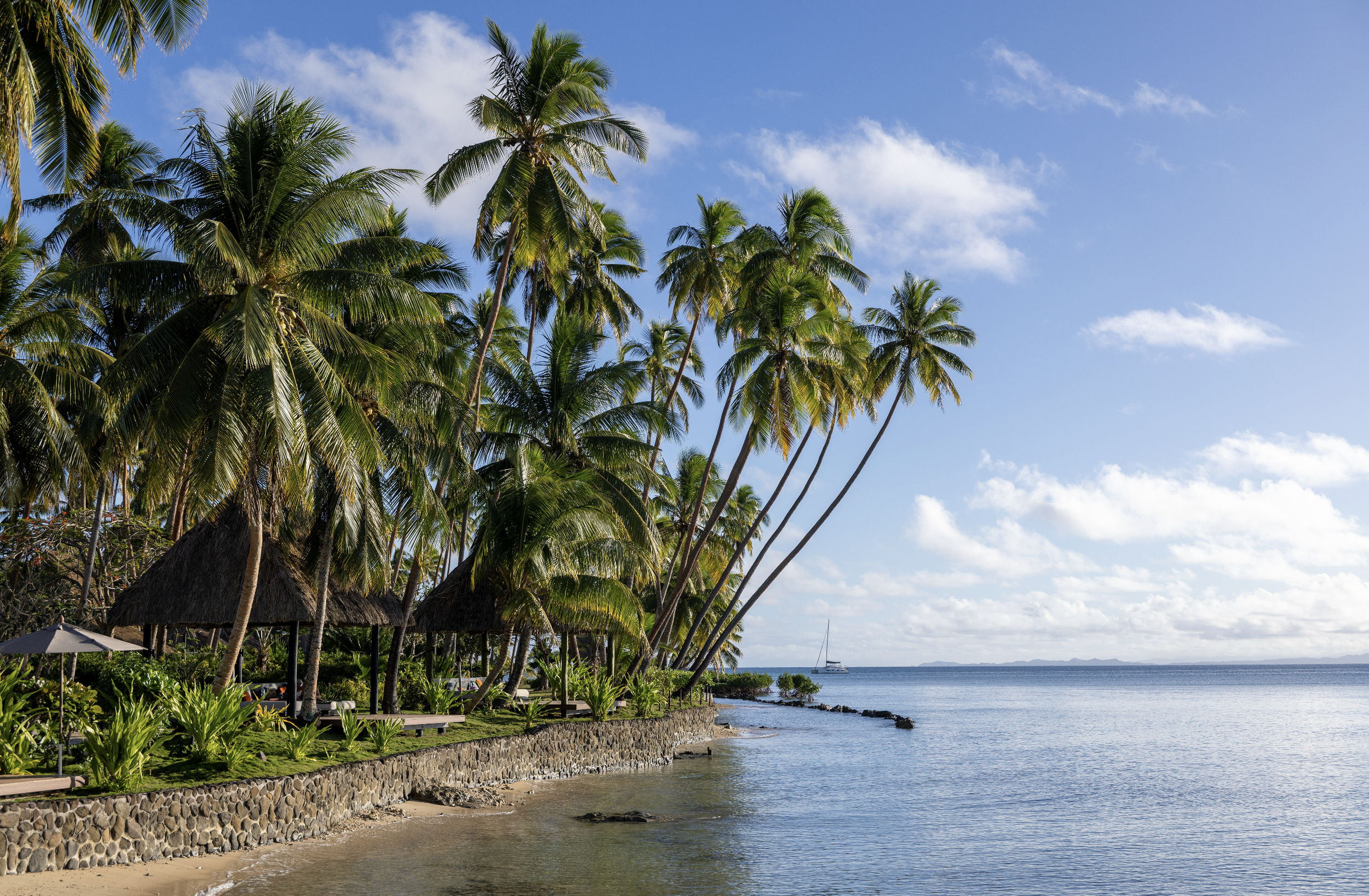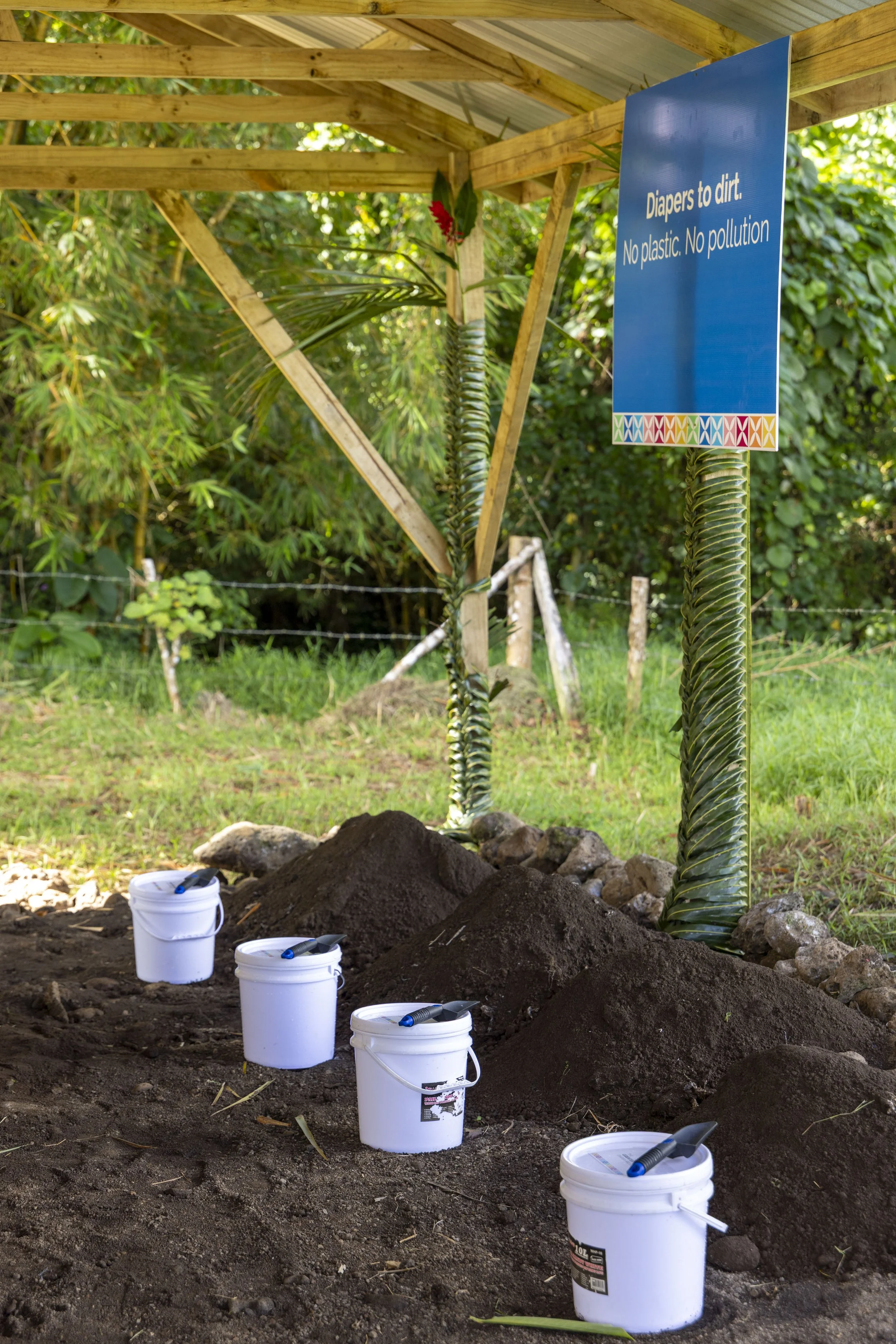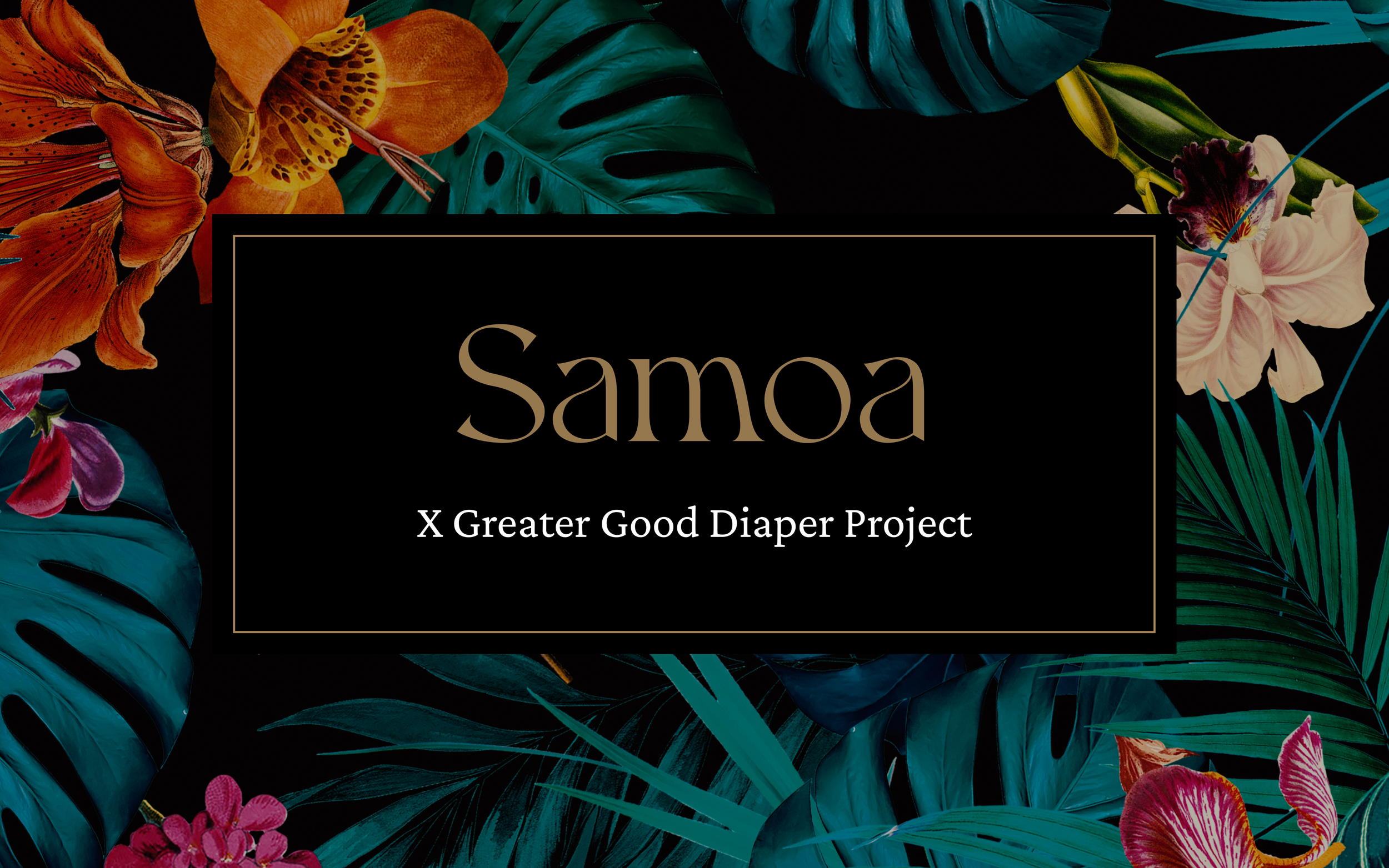
Samoa x Greater Good Diaper Project
In July 2025, we embarked on an unforgettable journey to the culturally rich islands of Samoa to experience the pilot of a revolutionary program aimed at eradicating one of the world’s most harmful plastic waste offenders: diapers.
Against the majestic backdrop of Samoa’s lush landscapes and vibrant culture, we immersed ourselves in the beauty of island life while learning from community leaders. The journey continued to Fiji, where we dove deep into ocean conservation through programs led by marine biologists at a family-focused property designed for education and connection.
July 16-23, 2025
For grandmothers, mothers and children ages 8-13
Utilizing the circular economy to reduce plastic waste via a compostable diaper system
Part 1 Sustainability immersion in the village of Poutasi: A Circular Economy Pilot
The first part of our journey took us deep into the Pacific to the Samoan islands, where we were introduced to the basics of sustainability while being deeply engaged with the Samoan people of our homesite, the small village of Poutasi. We were hosted by Poutasi village High Chief Tuatagaloa Joe Annandale, also the owner of Sinalei Reef Resort, where we stayed in Samoa.
While on the small island, our group was pleasantly surprised at how quickly we were immersed and welcomed into the village environment. We engaged in thoughtful experiences designed to bring the concepts of circular economy to life, as the foundation for our pilot program. The children compared waste audits with their Samoan peers, challenging their notions of waste, and the entire group participated in plate weaving with local women before sharing a traditional meal, which highlighted how minimizing waste is a part of everyday Samoan life. The Greater Good Diaper Project team gave us frontline access to their pilot program, supported by several of the Samoan ministries, and which had been unveiled to all the leaders of the Commonwealth at CHOGM, 2024.
As a takeaway, both mothers and children gained insights into our current ‘take, make, waste’ world, and innovative alternatives that mimic nature and regenerate natural systems. This pilot, once mature, had the potential to eradicate nearly a third of Samoan waste and redirect it back into the agricultural needs of the villages. The concept of “true costs” was also explored as we dug into the current economic model that ignores the cost of the waste that companies produce. This includes not only the pollution created, but the cost of the clean-up and the environmental damage it creates, and importantly, who bears the burden of these expenses.
The mothers in our group joined in conversation with powerful women in the Samoan government, of which the Prime Minister and much of the senior cabinetry are female, while the children spent their day in workshops with local youth leaders who are empowering young women to play a significant role in leading political and cultural change in Samoa. To complement all this programming, there was plenty of time for adventuring to the infamous To Sua Ocean trench, swimming with the turtles, and exploring a private island by way of kayak.
This first part of our journey left both mothers and children with an understanding of early philanthropy concepts that spanned framing global challenges, understanding global players working to solve those challenges, power dynamics, what makes for great partnerships and, lastly, firsthand experience with how nonprofits approach solutions for long-lasting impact.
Part 2 Oceanic conservation adventure in Fiji: empowering families for impact
Following Samoa, the group traveled to the stunning tropical land and oceanic habitats of Fiji, where we experienced the beauty of ocean conservation at Jean-Michel Cousteau Resort, a mission-oriented eco-resort with unique programming led by marine biologists and made for families and children. We continued our circular economy immersion from Samoa by engaging in recycling and composting projects, restoring mangroves and coral reefs, and witnessing endangered species thrive. For anyone between the ages of 10–80, there was the opportunity to dive or snorkel — just like the legendary namesake of the hotel itself — Jean-Michel Cousteau. Sustainability and honoring local tradition were at the center of this property’s ethos. The hotel maintained a strong partnership with the Savasavu Community, supporting programs from local education to conservation, and employed 99% of the team from nearby villages, nurturing economic growth and fostering a deep connection to the land. We enjoyed farm-fresh produce and exquisite artisanal goods, directly benefiting local farmers and artisans. All of this unfolded within the context of grand vistas of crystal blue waters and lush landscapes.
This ambiance and conservation curriculum supplemented AtlasDaughters’s unique teachings, where we explored the closer-to-home aspects of philanthropy by discussing topics related to family and self.
This second part of our journey honed our AtlasDaughters learnings from the bigger picture in towards the family and the self. We led mothers and children in workshops that assessed family values alignment, financial literacy topics, including the role of philanthropy as a family participatory activity, storytelling, leadership topics, and actionable impact frameworks that both mothers and children took with them following their journey.
What made an AtlasDaughters journey unique was our multi-generational philanthropy curriculum that complemented field visits and adventures, inspiring families to go deeper into how they create an impact in the world. Beyond the natural beauty and cultural richness of these two South Pacific geographies, this journey was one of adventure, deep human interconnectedness, and experiences that sparked a passion for protecting our world’s land and oceanic habitats.
About our nonprofit partner, The Greater Good Diaper Project
27% of household waste in the South Pacific is diapers.
With diapers now one of the largest contributors to the plastic waste crisis globally (UNEP), The Greater Good Diaper Project replaces plastics with compostable materials, stopping plastic pollution at the source.
Motherhood unleashes a new depth of strength within us, and when it comes to protecting our children and their environment, we are fierce. Yet diapers are one of the largest contributors to the plastic waste crisis on the planet, destroying the very home we are meant to protect for our children. With 380,000 diapers a minute entering landfills and polluting our oceans, our convenience is costing our children the earth. But necessity is the mother of invention.
Enter The Greater Good Diaper Project - providing the world’s first fully compostable diaper, paired with a collection and composting service. Not only does this stop plastic pollution at the source, but it also allows all diapers to compost into nutrient rich soil, regenerating our natural systems. This project is also designed through a female lens. This simple shift has a profound impact on every aspect of the business, from how work hours are structured to how decisions are made, our partner recognizes that female employees are often caregivers and celebrates this rather than penalizes it. The project empowers mothers and puts women at the center of the solution. No plastic. No garbage.
Although diapers are a global problem, the Governments of the South Pacific are leading with policy. Three countries have legislated a ban on the importation of disposable diapers in order to curb the 185,000 tons of plastic diaper waste polluting the South Pacific each and every year. With diapers accounting for 27% of all waste in the region, both governments and communities are committed to addressing the crisis. The Greater Good Diaper Project is currently working with the support of the Samoan Government on a pilot project, putting mothers at the center of the solution.
This groundbreaking pilot solution was unveiled for The Commonwealth Heads of Government Meeting (CHOGM), where 56 heads of state from the Commonwealth countries gathered in Samoa, in October 2024.
Our goal was to demonstrate the ease and simplicity of the solution to Majesty King Charles III, along with the other Commonwealth leaders, in order to promote replicability. With almost one billion diapers used per year in the South Pacific alone, the solution has the potential to be catalytic and become the single largest plastic pollution prevention program on the planet.
Co-funding grant opportunity
Couldn’t join us in Samoa? You can still participate in this groundbreaking partnership.
An Unforgettable Journey, Now a Cherished Memory
Filled with adventure, deep human interconnectedness, and moments that inspired a lasting passion for protecting our world’s land and oceanic habitats.









